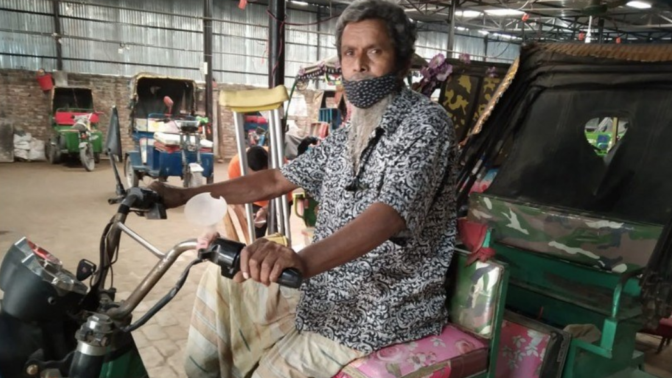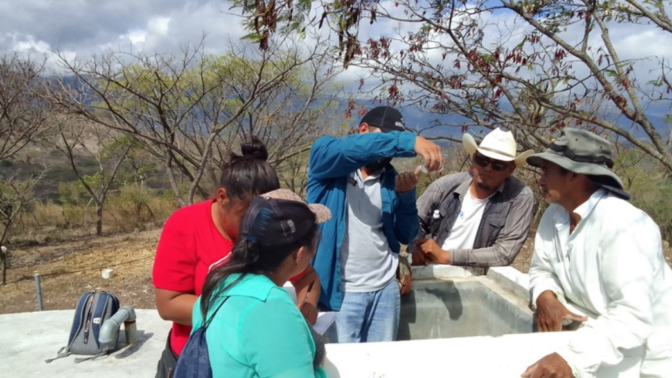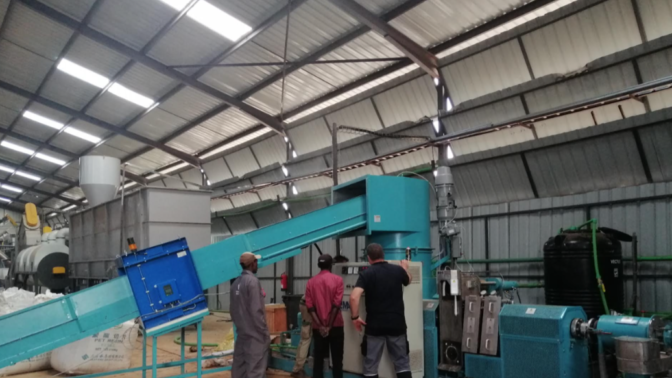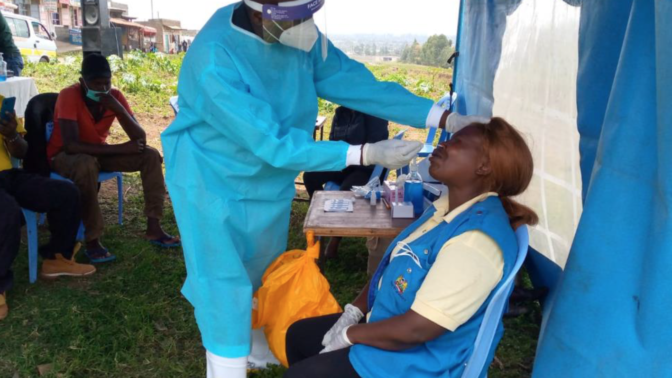epNetwork Social Enterprises Persevering with the COVID-19 Resilience Grant
Last year, as the COVID-19 pandemic continued to wreak havoc on communities around the world, we initiated a call for applications for the COVID-19 Resilience Grant. This grant, open to empowering people. Network (epNetwork) members, aimed to support these social enterprises with programs that may have otherwise been challenged by the impacts of the global pandemic. Adaptations and ingenuity both became front and center for social enterprises worldwide. In this blog post, we’re championing the efforts undertaken by four epNetwork impact enterprises, including: North Star Alliance, EOS International, TakaTaka Solutions, and SOLshare.
North Star Alliance
For North Star Alliance in Kenya, the aim of Siemens Stiftung’s COVID-19 Resilience Grant funding has always been very clear – to help screen their key target demographic (truck drivers, female sex workers, and men who have sex with men) for COVID-19, conduct training for frontline staff, and educate the general population on COVID-19 prevention and the importance of vaccines. Infection screening was conducted in hotspots surrounding the Salgaa Blue Box clinic in Nairobi and an outreach event raised awareness amongst the community about COVID-19 while highlighting measures to prevent and control the pandemic.
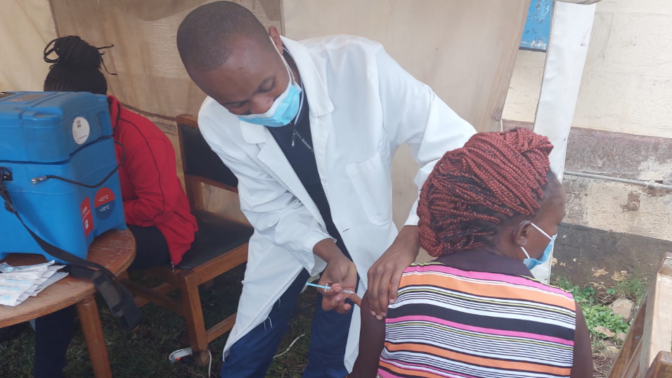
North Star Alliance’s enhanced project milestones:
- All staff at the Salgaa Blue Box clinic are equipped to protect themselves and their clients when performing their healthcare services.
- North Star organized a four-day training session for staff, outreach workers and Community Health Workers (CHWs) which was facilitated by trainers from the local Ministry of Health. The social enterprise also procured and distributed Personal Protective Equipment (PPE) to frontline staff.
- All clinic patients to be screened for COVID-19 and or referred to another health facility.
- Cumulatively, the project educated 7,186 people on COVID-19 and screened 4,738 people. Of those who were screened, 25 people tested positive for the virus, with 23 of those being treated and recovered.
- There is a change in behavior of people accessing the Salgaa Blue Box clinic specifically focusing on individual protective care (washing hands, wearing a mask, social distancing, etc.).
- The project is progressing well despite challenges caused by COVID-19 pandemic restrictions. The team is not only committed to reaching out to more patients, but also addressing stigma and ensuring that those who test positive for COVID-19 are loved, cared for, and reintegrated into their respective homes and workplaces after recovery.
EOS International
EOS International (EOS) has seen tremendous growth and expansion thanks to the partnership with Siemens Stiftung, and particularly due to the COVID-19 Resilience Grant, as the organization scales up its model of providing water quality solutions to rural communities. EOS continues to work with ministries of health to educate and train these communities in water quality – specifically related to technical capacity, financial management, administrative management, and water supply protection. The team has also hired two dedicated Circuit Riders who will continue to provide monthly monitoring, water quality analysis, education, training, and support to these communities.
In its initial analysis, EOS found that nearly 99% of the community water systems tested were contaminated with harmful bacteria; based on these high contamination rates, EOS immediately provided water treatment solutions to these communities. EOS’ continued work with ministries of health at local and national levels has allowed their team to work in two new regions, expanding access and reach to communities, fostering continued program growth and local sustainable development. The team utilizes real-time reporting of community water quality in the cloud-based mobile data collection system, allowing them to share critical indicators with their partners.
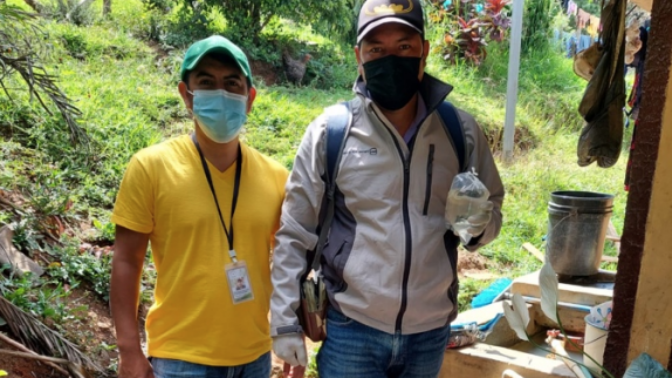
EOS’ key milestone indicators:
- Water chlorinators installed in 100 rural communities
- By December 2021, EOS had installed 103 chlorinators. The team encountered some delays in accomplishing this milestone due to the pandemic and inability of staff to travel due to restrictions. However, EOS was able to obtain critical health passes for its team, allowing them to continue providing services to rural communities. EOS staff have all been vaccinated, allowing for increased travel and promotion of the program. The program remains successful thanks to EOS’ two dedicated Circuit Riders and support from the program coordinator, microbiology doctor, and hygiene staff.
- All 100 communities receive water quality training in four areas
- As previously mentioned, technical capacity, financial management, administrative management, and water supply protection make up EOS’ training focuses. Technical capacity training takes place in coordination with the chlorinator installation. In addition to the community water board training, the staff will provide regular monthly water quality testing, measuring the chlorination rates during visits.
- All communities are purchasing chlorine tablets and actively chlorinating their water at a rate of 80% or greater as measured monthly
- EOS has found that communities continue to actively chlorinate their water at a rate of 95.8% as measured through monthly testing. While EOS has just finished installing all of the chlorinators, the chlorine tablet sales in this region are only just beginning. Many of the communities are still using the tablets that were purchased as a part of the initial stock of the chlorinator installation.
TakaTaka Solutions
Since the COVID-19 pandemic began, it has not been business as usual for TakaTaka Solutions. In Kenya, like in the rest of the world, the composition of waste has changed significantly, businesses have shifted operations, and people have become more cautious. For TakaTaka Solutions, this has meant reduced waste from their clientele and, thus, reduced revenue – several of TakaTaka’s big clients shut down, and those who stayed open had reduced waste volumes. However, while waste volumes have gone down during COVID-19, new waste streams have come into existence. These are waste streams relating to reducing the risk of spreading COVID-19 like face masks and protective gowns.
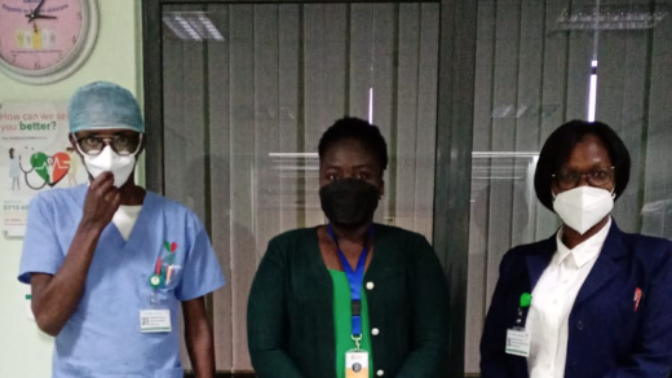
The COVID-19 Resilience Grant from Siemens Stiftung has supported TakaTaka Solutions in expanding their business offerings to support:
- The implementation of a scalable return collection model
- TakaTaka Solutions has replaced bins and stations for four clients thus far and piloted on-site separation options and other logistics options including direct collection services. So far, they have worked with Meditest and three local hospitals.
- Recycling and separation of PPE (including the expansion of such efforts)
- The social enterprise has been able to procure and install machinery, pilot recycling options to recycle the plastic parts of PPE (so far, the team has successfully produced pellets from hospital gowns), and identify solutions for non-plastic materials.
- In coordination with the Kenya Association of Manufacturers, the team has also been able to identify producers of PPE and sources of PPE waste, and the team is currently focusing on leads in the food industry.
- Off-take agreements
- TakaTaka Solutions has completed trials with five potential off-takers and has signed agreements with three.
In summary, their enhanced services have included collecting, sorting, disassembling (removing the non-plastic parts) and recycling these items into new plastic granules. In this manner, the social enterprise has been able to offer a circular economy solution for a product that was previously disposable. This, inherently, helped their team in acquiring new customers while also pushing the agenda of moving products away from a linear economy model (produce to dispose) to a circular one (reuse or recycle).
With COVID-19 here to stay, waste associated with PPE will persist, and the only way forward would be to embrace it and find ways they can reduce the footprint left by PPE waste; this may include adapting new materials and engineering new ways to dispose and recycle them. For TakaTaka Solutions, the pandemic has caused some of their clients to put more emphasis on their general hygiene and, by extension, insist on high quality waste management services.
SOLshare
As the COVID-19 pandemic hit the world, SOLshare ventured into new territory with their mobility solutions, SOLmobility. Their goal is to increase the profits of rickshaw drivers by 25% by introducing new battery technology and improved battery financing to the market. While working with local battery companies and financial organizations alike, SOLshare de-risks the provision and financing of these battery assets by providing solutions that allow remote access and monitoring of these batteries. This allows the folks at SOLshare to provide financing for lithium-ion batteries, making them available to the market at a significantly lower cost per day.
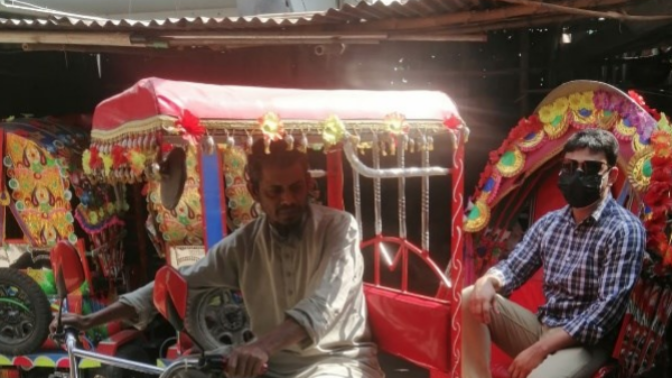
The COVID-19 Resilience Grant from Siemens Stiftung has helped SOLshare propel these initiatives and, so far, the social enterprise has made headway in the following ways:
- Surveys & site selection
- SOLshare has completed surveys across several districts. While site selection has been completed for the current garage collaborations, additional sites may be selected based on demand and interest. Surveys will remain ongoing throughout the project on both charging garages and EV drivers to get the most information possible for tech development and data analysis.
- Prototype and user test battery health information communication
- Currently, a basic prototype is being tested in order to best inform the features needed by users for the smart version which is still undergoing development.
- Lithium-ion battery testing
- Testing results shown previously were all done with the Tongi EV Charging station. Further testing will be done in other areas.
- Lithium-ion battery field roll out
- Lithium-ion batteries have been procured and are expected to arrive by the end of April after which they will be fitted with PAYG smart tech and tested over a few weeks before being rolled out by June.
- Collaborate with 5 EV charging garages
- Collaboration with the garages will continue for the duration of the project.
- Training for garage staff & EV drivers
- As batteries are rolled out training will also be required for garage staff and EV drivers and new users become involved.
Looking at current projects and ahead to future activities, SOLshare is currently running tests on smart lithium-ion batteries at the Tom Tom charging station in Khagrachari. The next set of lithium-ion batteries will be received by the end of April, and all the tests being run on lithium-ion batteries are being used to inform the features and requirements of smart PAYG battery technology SOLdongle (SOLshare) is developing. Throughout May, piloting and Q&A testing will be done on the smart dongle and new batteries. The set of smart batteries will be deployed in June after testing has been completed and the new smart tech integrated batteries are ready. Once deployed, SOLshare will continue user surveys and dashboard monitoring for data insights. Later this year, a full assessment of the impact on EV driver livelihoods will be done.
No matter where you live, work, or spend most time, the COVID-19 pandemic has certainly had an impact on your life. But, in times that have been uncertain, one thing is for sure – social impact can transform people’s lives. Throughout these times, the progress and impact being made by North Star Alliance, EOS International, TakaTaka Solutions, and SOLshare are all testament to what social impact is in its simplest form – where solutions better the lives of those who need it most. We remain confident that significant strides will continue to be made, and we thank social entrepreneurs near and far for their continued commitments to bettering our world.
